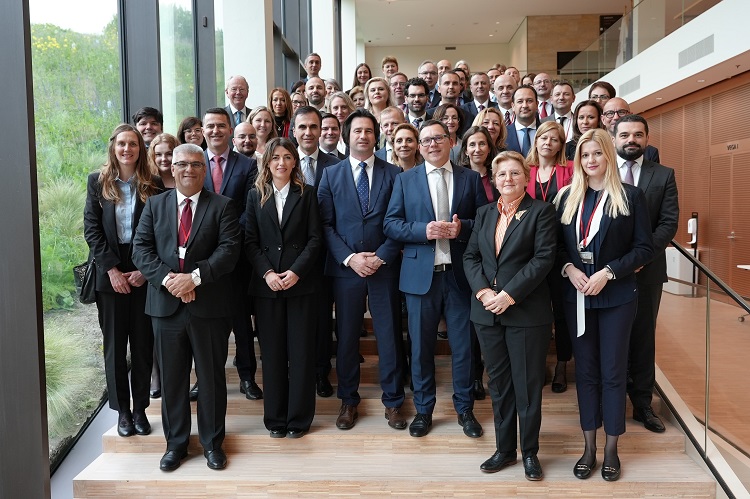Launch of new project to enhance judicial cooperation within and with the Western Balkans

Launch of new project to enhance judicial cooperation within and with the Western Balkans
The Western Balkans Criminal Justice Project – WBCJ – kicked off today with a launch conference attended by high-level representatives of the regional partners and several EU institutions. Funded by the European Commission and implemented by Eurojust, the initiative aims to strengthen judicial cooperation within the Western Balkans as well as between the region and the EU in the fight against organised crime and terrorism. Participants are Albania, Bosnia and Herzegovina, Kosovo*, North Macedonia, Montenegro and Serbia.
Today’s launch conference marked the end of the inception phase and the official start of the Project’s operational activities. The conference was attended by delegations of the Western Balkan partners as well as representatives of the Directorate-General for Neighbourhood and Enlargement Negotiations and the Directorate-General for Justice and Consumers and the Swedish Presidency of the Council of the European Union.
The WBCJ Project (full title: Enhancing cross-border cooperation in criminal justice in the Western Balkans) is an IPA III project with a budget of EUR 6 million and a duration of four years (with a possible extension). It revolves around a Contact Group of practitioners from the Western Balkan region who are responsible for identifying common cases that would benefit from enhanced coordination. These selected cases receive financial support and expert advice from Eurojust to facilitate coordinated parallel investigations/prosecutions and joint investigation teams. The inception phase started in September 2022 with a number of high-level consultation visits by the Eurojust Presidency to the six Western Balkan partners, the establishment of both the Eurojust Project Team and the Contact Group, and the adoption of the first work plan.
Through the WBCJ Project, Eurojust seeks to further engage with its partners in the Western Balkans and to bring the EU’s judicial cooperation tools closer to practitioners in the region as well as to build trust between the relevant judicial actors.
Source: EUROJUST
Photo credits: EUROJUST



